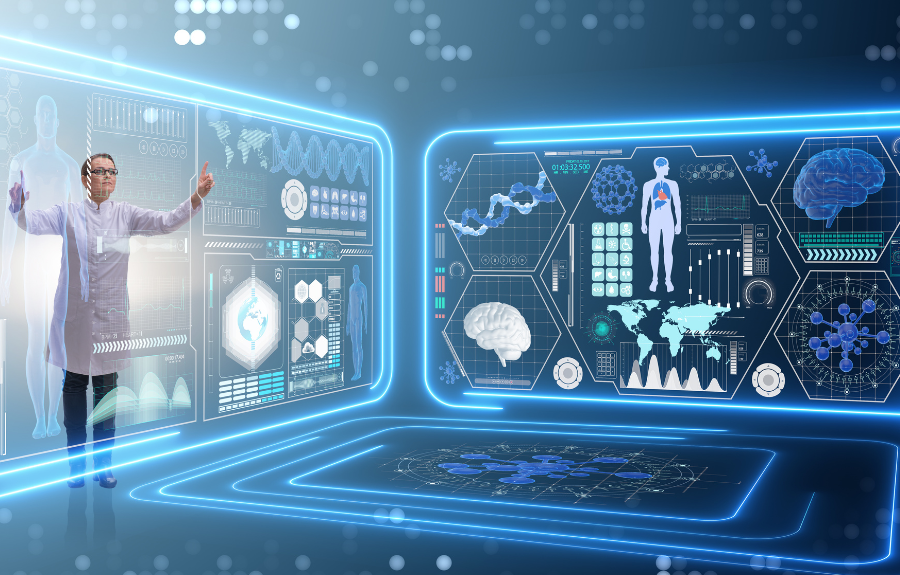
AI Influence in Modern Medicine
AI, in essence, is the creation of intelligent machines that can mimic human functions like thinking, learning, and problem-solving. In the medical world, this translates to:
Enhanced Diagnostics: Human error in diagnostics can be reduced significantly. Advanced AI systems analyze medical imagery, including MRIs and X-rays, with unparalleled precision, identifying nuances often overlooked by clinicians, and leading to early and accurate disease detection.
Forecasting Health Trends: The vast data generated in healthcare settings can be overwhelming. AI steps in to interpret this data, helping predict potential outbreaks or foresee patient emergencies, and ensuring timely interventions.
Tailored Treatments: Recognizing the individuality of every patient, AI evaluates genetic and environmental factors to craft customized treatment plans, maximizing therapeutic effectiveness.
Accelerating Drug Development: Discovering new drugs is a lengthy and expensive endeavor. AI can streamline this, identifying potential drug candidates by understanding complex biochemical dynamics.
Streamlining Administrative Tasks: Through AI-driven virtual assistants and chatbots, mundane tasks like scheduling or basic consultations can be automated, giving healthcare professionals more time for direct patient care.
Mobile Applications: The Bridge between AI and Patients
In our gadget-driven age, mobile applications are becoming the heartbeat of several industries, healthcare included. Let’s consider the innovative strides taken by a mobile app development company in Dubai. They launched an AI-integrated app that uses just the smartphone’s camera to track vital statistics. Such advancements could potentially redefine telehealth and patient monitoring, making healthcare more accessible and immediate.
Benefits of such apps include:
- Continuous Health Tracking: Offering real-time health data tracking, alerting patients and caregivers to any potential issues immediately.
- Boosting Patient Involvement: AI-driven apps can offer personalized health advice, reminders for medicine intake, and more, keeping patients actively engaged in their health journey.
- Virtual Health Consults: Especially crucial in a world prioritizing remote interactions, these apps can link patients to medical professionals for AI-enhanced consultations.
Future of AI in Healthcare
As with all technologies, diving into AI for medical purposes comes with its set of challenges. One of the big issues is how we handle and protect the massive amounts of personal health information that AI systems will use. We need to be sure that people’s private details are safe and secure.
Then there’s the question of who’s responsible when things go wrong. If an AI tool makes a mistake in diagnosing someone, who takes the blame? Is it the doctors, the people who made the software, or the AI system itself?
And, no matter how advanced AI becomes, we shouldn’t forget the unique human touch in healthcare. It’s something machines can’t replicate. So, as we look towards the future of AI in healthcare, it should be about supporting our medical professionals, not trying to replace them.
Looking Forward
AI’s integration into healthcare is still unfolding, yet its transformative potential is undeniable. As tech developments continue, especially in global hubs like Dubai, we can expect a seamless blend of technology and medicine.